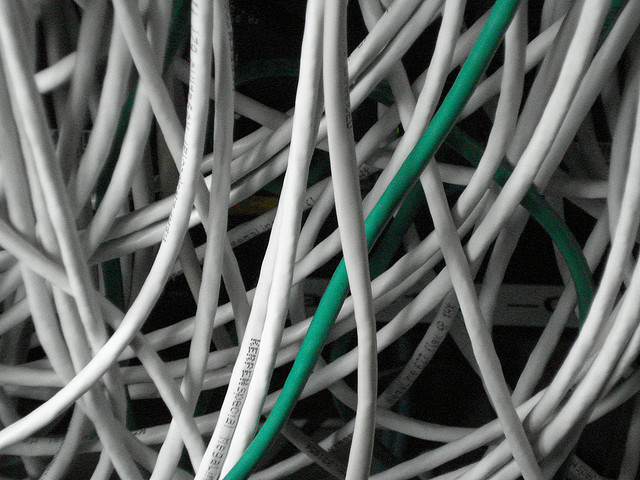
Internet access in Melanesia, Micronesia and Polynesia is on the rise. That’s a good thing, but there are gaps in governance. It would be in Australia’s interests, and those of our friends and neighbours to help.
Mobile phones with 3G and 4G are rapidly spreading across the region (PDF)—around 60% of Pacific Islanders have access to one. In 2012, the Solomon Islands and Vanuatu announced that they would be undertaking an undersea fibre cable project to improve their internet connection. It is expected to be completed by the end of this year. Fiji is already connected to the Southern Cross Cable and enjoys good internet connection. These and other benefits also bring new cyber security challenges.
No Pacific Island state has its own computer emergency response team. A distributed denial of service attack in the Marshall Islands in 2008 saw the island disconnected from email communication for two days. At present, cybercrime legislation across the region is also fairly uneven. There have been efforts to strengthen cyber-crime legislation, notably in Tonga and Fiji, but for the most part the capacity to enforce these laws remains a challenge. Cyber legislation in Fiji is also coupled with censorship that targets online dissent against the Bainimarama regime. Lax cyber regulation in the region is potentially a problem for Australia. In 2011, for example, Tokelau was ranked second in the world for malicious registrations aimed at stealing personal financial information. Tokelau had sold its domain name to a foreign company. With an open domain, the island became a hub for cyber-crime.
Australia can help. We are already involved in a number of regional initiatives including PacCERT (a regional computer emergency response team that helps enable the region in addressing cyber security problems), regional workshops on dealing with cybercrime, workshops on cybercrime legislation and Cyber Safety Pasifika—an initiative aimed at facilitating responsible and safe internet practices. Other initiatives, with Australian support, have been taken through organisations like the Pacific Island Forum and Pacific Island Law Officers’ Network.
Continued AFP involvement with Cyber Safety Pasifika would likely pay dividends, and greater attention could be paid to assisting with the development of cyber legislation. Siaosi Sovaleni, manager of the SPC’s Pacific Information Communications Technology Outreach programme, stated in July last year that the Pacific Islands ‘need to actually have appropriate legislation in place’ to deal with cyber offences.
There are other major players. The EU, under the ICB4PAC project, is assisting with Pacific Island ICT development. China, a major actor in the South Pacific region, has also increasingly become involved with cyber initiatives among the Pacific Islands. The Fijian Commissioner of Police and Hong Kong Commissioner of Police met last year to discuss issues including cyber-crime. Additionally, Chinese company Huawei Technologies provided the funding for Vanuatu’s e-Government program, loans from China (PDF) have helped Fiji create a data centre in Suva, and China is working within the region to provide access to low-cost internet (PDF).
Australia has an enduring interest in capacity building in South Pacific nations. Helping them to develop a robust internet backbone and the ability to deal with unlawful and malicious online behaviour is a natural extension of our other activities. It’s not as obvious as other activities, but it’s no less important.
Mary Willett is an alumnus of ASPI’s internship program. Image courtesy of Flickr user Mika417.

